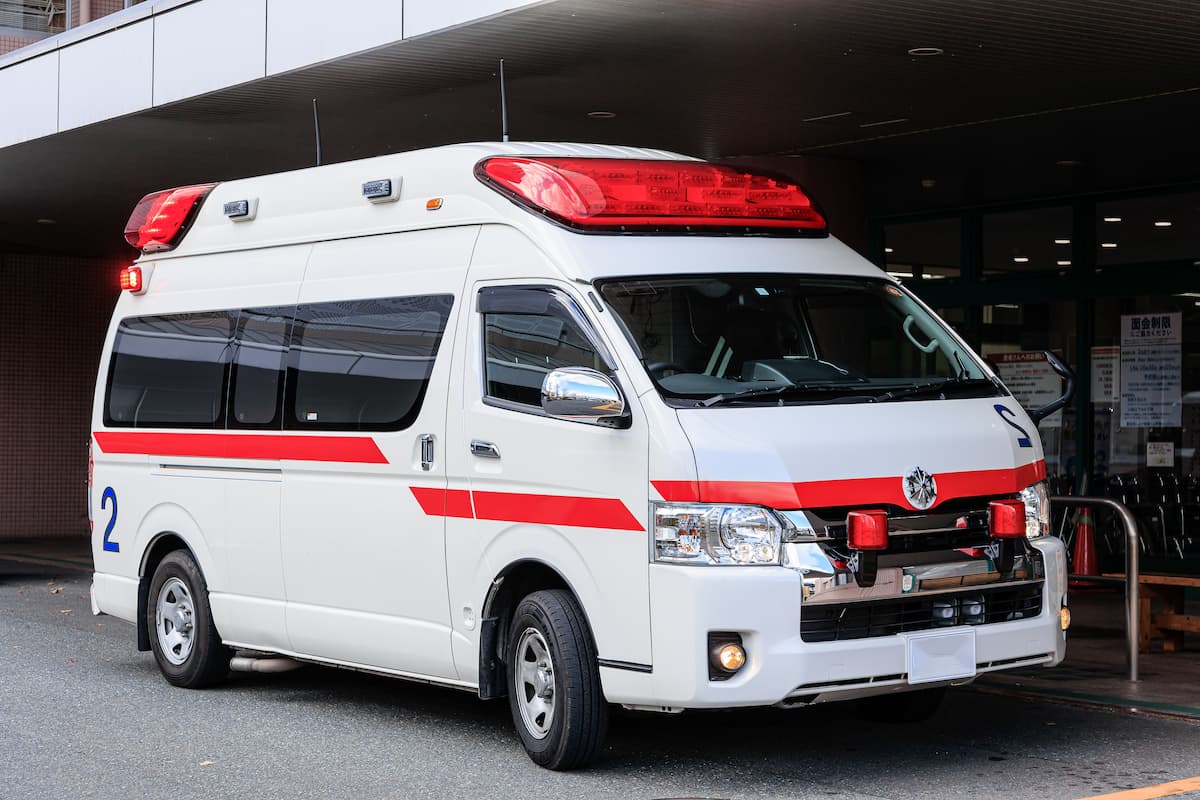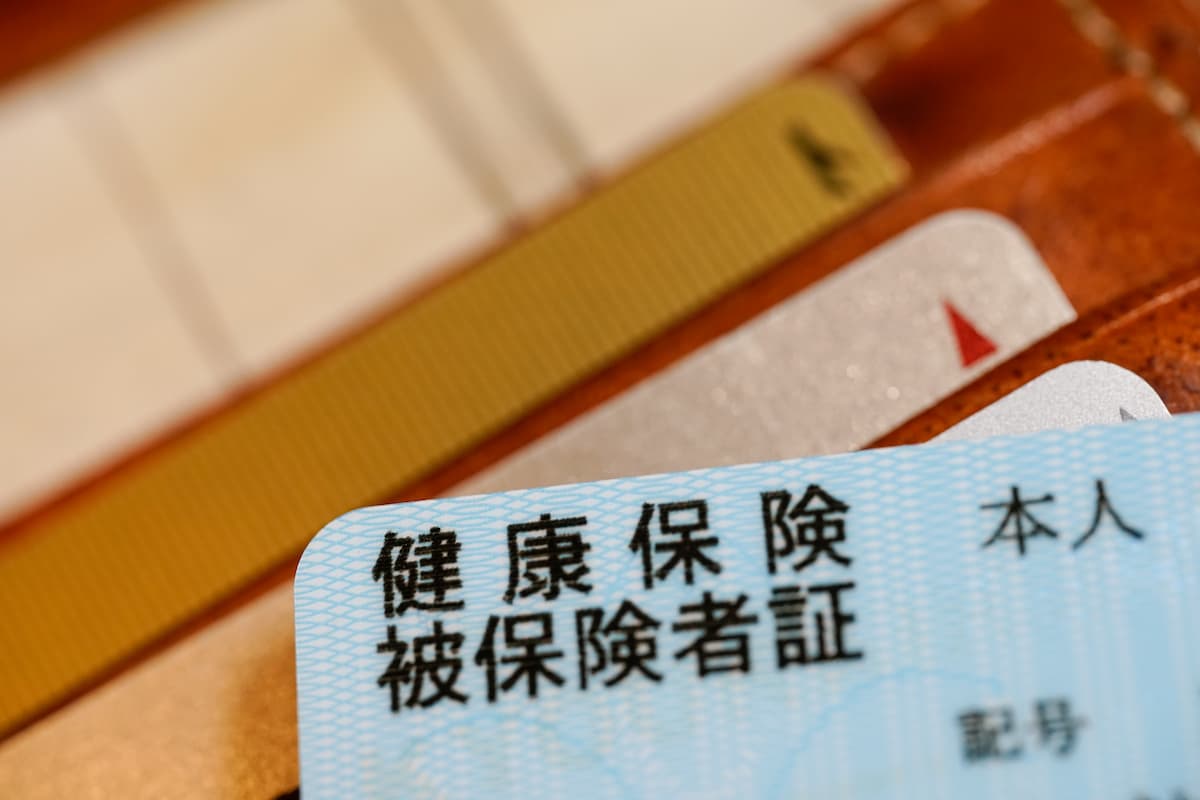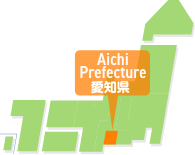How do you call an ambulance in Japan? Learn the correct way to use one

Hello, this is Kano from JAC (Japan Association for Construction Human Resources).
When you are injured or unwell, you go to the hospital.
However, if your symptoms are too severe to go to the hospital on your own, or if someone nearby collapses, call an ambulance.
You never know when an injury or illness will occur, so it's a good idea to know how to call an ambulance.
This time, we will explain how to call an ambulance.
We will also explain the criteria to use when you are unsure whether to call an ambulance, so please use this as reference.
How do I call an ambulance?
We will show you how to call an ambulance.
- Call the phone number "119"
- If asked "Is it a fire or an emergency?", answer "It's an emergency."
- Tell the ambulance where you want them to come (address)
- Communicating symptoms of someone who is unwell ("who, how, what happened")
- State the age, sex, and nationality of the person who is unwell
- Give the name and contact number of the person you are calling
If you are having difficulty making or speaking on the phone yourself, ask someone nearby to call an ambulance.
If the person who is unwell is a foreigner, you may be asked the following questions:
- nationality
- Foreign residents or tourists?
- Period of stay in Japan
- Religion you believe in, etc.
This is because some people refuse to be examined by a doctor of the opposite sex or to receive a blood transfusion for religious reasons.
However, in emergency cases requiring ambulance care, it may not be possible to find a doctor of the same sex, or a blood transfusion may be required.
If you can check in advance, it's a good idea to ask.
Also, knowing how to express pain in Japanese may make it easier to communicate your symptoms.
More details on expressing pain can be found in this article.
Learn how to express pain in Japanese! How to convey pain effectively
When the ambulance arrives, tell them any changes in your symptoms between the time you called and when they arrived.
If there has been a change, explain how it has changed; if there has been no change, say there was no change.
If you administered first aid, tell them what kind of first aid you administered.
Please communicate calmly, slowly, and clearly.
Having a translation app on your smartphone will be useful when communicating symptoms, etc.
It is also a good idea to prepare a note with any illnesses or surgeries you have had in the past, any allergies, etc.
When should you call an ambulance? Learn the correct way to use it
Sometimes you may not be able to decide whether it is okay to call an ambulance or whether you should go to the hospital yourself.
Please refer to the Fire and Disaster Management Agency's "Ambulance Guide" for information on symptoms that require calling an ambulance immediately.
For example, symptoms include:
- When you suddenly get a severe headache
- When you suddenly become short of breath
- When you can't breathe
- When unconscious, etc.
*For information in foreign languages, please see the "Ambulance Guide for Foreign Visitors to Japan."
If you experience any of these symptoms, call 119 immediately.
Ambulances can be used free of charge.
What if I'm not sure whether to call an ambulance?
If you are unsure whether to call an ambulance, use the following methods to decide whether to call an ambulance:
- Call "#7119" for advice
- Use services such as "Tokyo EMS Guide"
- Talk to someone close to you
Call "#7119" for advice
Although service is available only in limited areas, by calling "#7119", you will be able to speak to a medical professional such as a doctor or nurse.
They also have the role of telling you about nearby hospitals when you don't know where the hospital is.
For the areas covered, please check the "♯7119 Implementation Area" on the Fire and Disaster Management Agency's website.
However, "#7119" may be a different number depending on where you live.
Make sure you know what number to call in your area.
In addition, the languages available for calls to "#7119" vary depending on the region.
Please note that some services are only available in Japanese.
Use services such as "Tokyo EMS Guide"
If you have difficulty using "#7119", please refer to the support site for foreigners, "Tokyo EMS Guide".
By answering questions about what symptoms you are experiencing, you will receive advice on whether you need to call an ambulance.
Talk to someone close to you
If you don't know what to do, ask for advice from a Japanese person nearby or from Japanese staff at your workplace.
When not to call an ambulance
Do not call an ambulance in the following cases:
- In the case of a non-urgent minor injury or illness (such as a cough or runny nose)
- When you don't have transportation to the hospital
What should I prepare before the ambulance arrives?

If the person who is injured or unwell is yourself or a family member, if possible, prepare the following items before the ambulance arrives:
- Health insurance card
- Medications you usually take
- shoes
- Money, credit cards, cash cards
- (For children) Maternal and Child Health Handbook, diapers, baby bottle
If you are a foreigner, you may be asked to show your passport to prove your identity.
Try to carry it with you as much as possible.
However, physical activity may make symptoms worse.
When calling an ambulance, ask if there is anything you should prepare and whether it is okay to move around.
Summary: Call 119 to call an ambulance! Ask for advice when in doubt
Ambulances are available for those with serious illnesses or injuries.
Call 119 and tell them your symptoms and where you want the ambulance to come.
If you are unsure whether you should call an ambulance, please consult a specialist institution such as "#7119".
It may also be a good idea to ask for advice from Japanese people nearby or from Japanese staff at the company where you work.
You should not call an ambulance if your symptoms are mild and you are able to go to the hospital on your own.
Additionally, ambulances should not be used as a means of transportation.
If possible, have your insurance card, money, etc. ready before the ambulance arrives.
However, there are times when you should not move someone who is unwell.
Follow the instructions you receive over the phone when calling an ambulance.
About us, JAC
JAC(Japan Association for Construction Human Resources)is an organization that supports all Specified Skilled Workers working in the Japan construction industry. We work with companies that accept Specified Skilled Workers to create a work environment that is easy for everyone to work in.
We're also taking the exams you need to become a Specified Skilled Workers!
And JAC has received many requests for job offers from companies that want Specified Skilled Workers to work for.
Specified Skilled Workers Wanted! Job Listings
For those of you who want to work in Japan using Specified Skills, we are introducing jobs that match your occupation and aspirations!
If you have any problems, please feel free to contact us!








